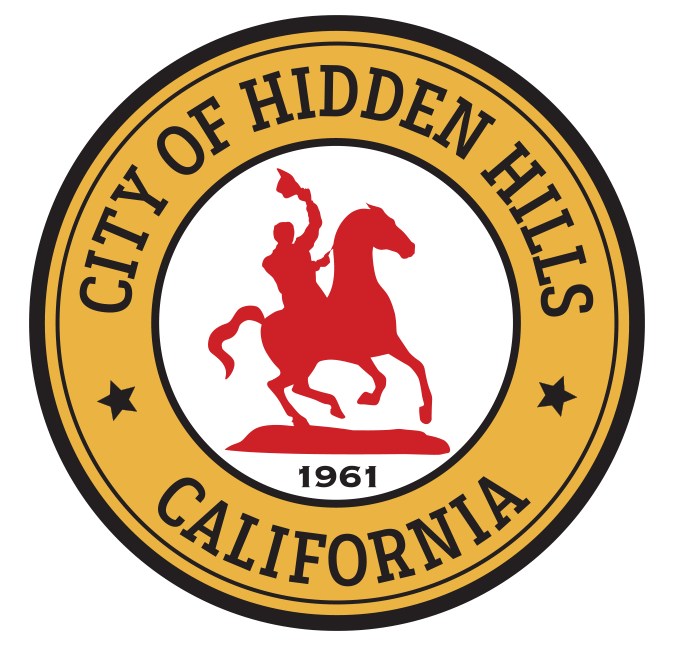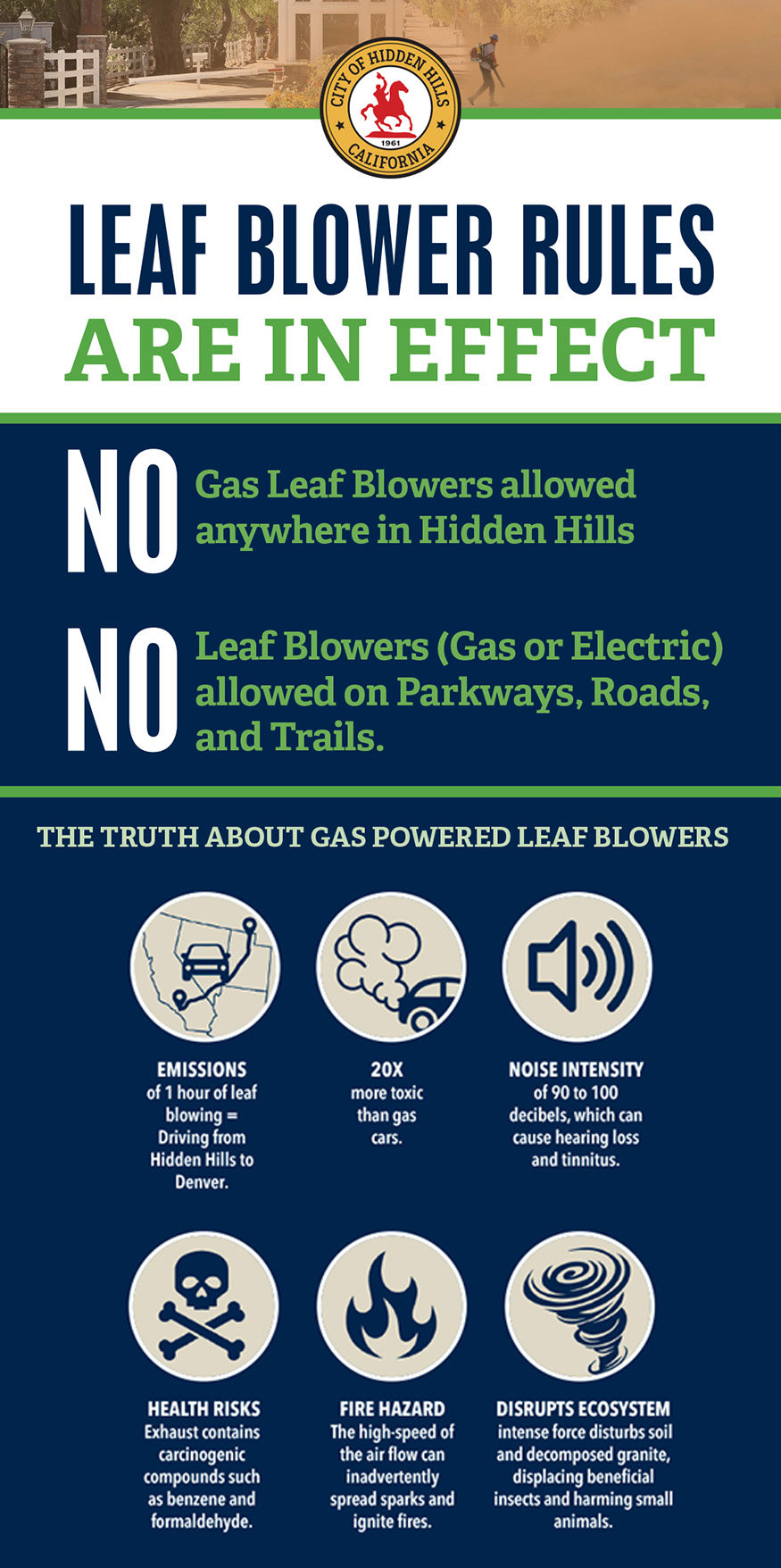Gas Leaf Blowers Are Prohibited Throughout the City
Since 1994, gasoline powered leaf blowers have been prohibited throughout the City of Hidden Hills. This prohibition was put in place as the use of gas powered leaf blowers raise concerns about excessive noise, air pollution, and exposure to particulate matter.
Electric or Battery Leaf Blowers Only Permitted on Private Property
On April 26, 2021, citing additional health and safety concerns of residents, the City Council adopted Ordinance No. 374, amending the City’s Municipal Code to expand the City-wide ban to all leaf blowers (gas, electric, or battery powered) on parkways, roadways, streets, and pedestrian and equestrian trails. The ordinance specifies that no person shall cause another person (such as a gardener or landscaper) to use or operate a leaf blower in these areas. As adopted, all leaf blowers are prohibited in Hidden Hills with one exception: non-gasoline powered (electric or battery-powered) leaf blowers are permitted on private property exclusively, for example, in residential front yards and backyards.
Enforcement
Any responsible person (such as a resident, property owner, property manager, or entity) that creates, permits, or allows a violation of this ordinance is subject to an administrative citation. Prior to issuing an administrative citation, residents will receive written warnings with information on the City’s ordinance and be asked to correct the future violation. Thereafter, if the responsible party is found to be in violation, an administration citation will be issued along with a fine: $100 for the first offense; $200 for the second violation within one year; and $500 for each additional violation within one year. The new ordinance and rules regarding leaf blowers went into effect on May 26, 2021.
To report a leaf blower violation, please contact City Hall at 818-888-9281 or send an email to staff@hiddenhills.gov. Please provide the address and time of day of the prohibited use. You may also click HERE to fill in and submit an official report.
The Problem with Gas Leaf Blowers
- Leaf blowers generate large amounts of airborne dust, including mold spores, allergens, dried animal feces, pesticides and fine particles that increase the number and severity of asthma attacks, cause or aggravate bronchitis, or other lung diseases, and reduce the ability to fight infection. The EPA and the California Air Resources Board, in their brochure “Particulate Matter Air Pollution: A Threat To Our Health,” advise us; “Avoid using leaf blowers.”
- Leaf blower motors are large emitters of carbon monoxide, nitrogen oxides, hydrocarbons, and fine particles too small to be eliminated by the body’s defenses. The gas-oil mixture that fuels two-stroke engines is especially toxic. The American Lung Association reports that a leaf blower motor releases as much smog as 17 cars. This pollution is known to cause cancer and cardiopulmonary disease.
- The noise from a leaf blower can reach 90-100 decibels at the operator’s ear. According to the World Health Organization, there is an increasing risk of irreversible hearing damage from noise above 75 decibels. Hearing protectors do not necessarily prevent the damage. Blower noise also increases the risk of accidents, causes sleep deprivation, affects the gastrointestinal system, and increases the likelihood of cardiovascular disease, including heart attacks. Noisy environments impair the hearing health, language development, and learning disabilities of children, and may affect their behavior.
- Small, two-cycle gasoline engines are notoriously inefficient, consuming large amounts of fuel that the country cannot afford to lose. Electric powered leaf blowers are less polluting and less noisy, but the adverse effects of airborne dust are the same.
- Leaf blowers have been shown to cause serious damage to soil and landscape plants with their dust-laden 200 mph force winds, which cause dehydration and leaf-burn, retard new growth, clog leaf pores, and spread disease spores, insect eggs, and weed seeds.
- For lawns of approximately a half-acre, garden rakes are nearly as quick as leaf blowers, and do a better job. In Los Angeles, a contest sponsored by the Department of Water & Power showed that a woman in her late 50s, using a rake and broom cleaned an area faster than electric leaf blowers and nearly as fast as a gas-powered machine – and she did a better job. Rakes cost far less than leaf blowers, they last much longer, and they require no maintenance. For your health, your safety, and the health of your lawn and garden, use a rake, and ask your landscaper to do the same.
Looking to Switch to an Electric Leaf Blower?
Although the City cannot endorse a particular electric leaf blower, the HHCA’s landscaping switched years ago to the Stihl backpack model and reports it is an excellent model with 2 hours of battery life. Although electric blowers are a little more costly, think of it as an investment in our future.

